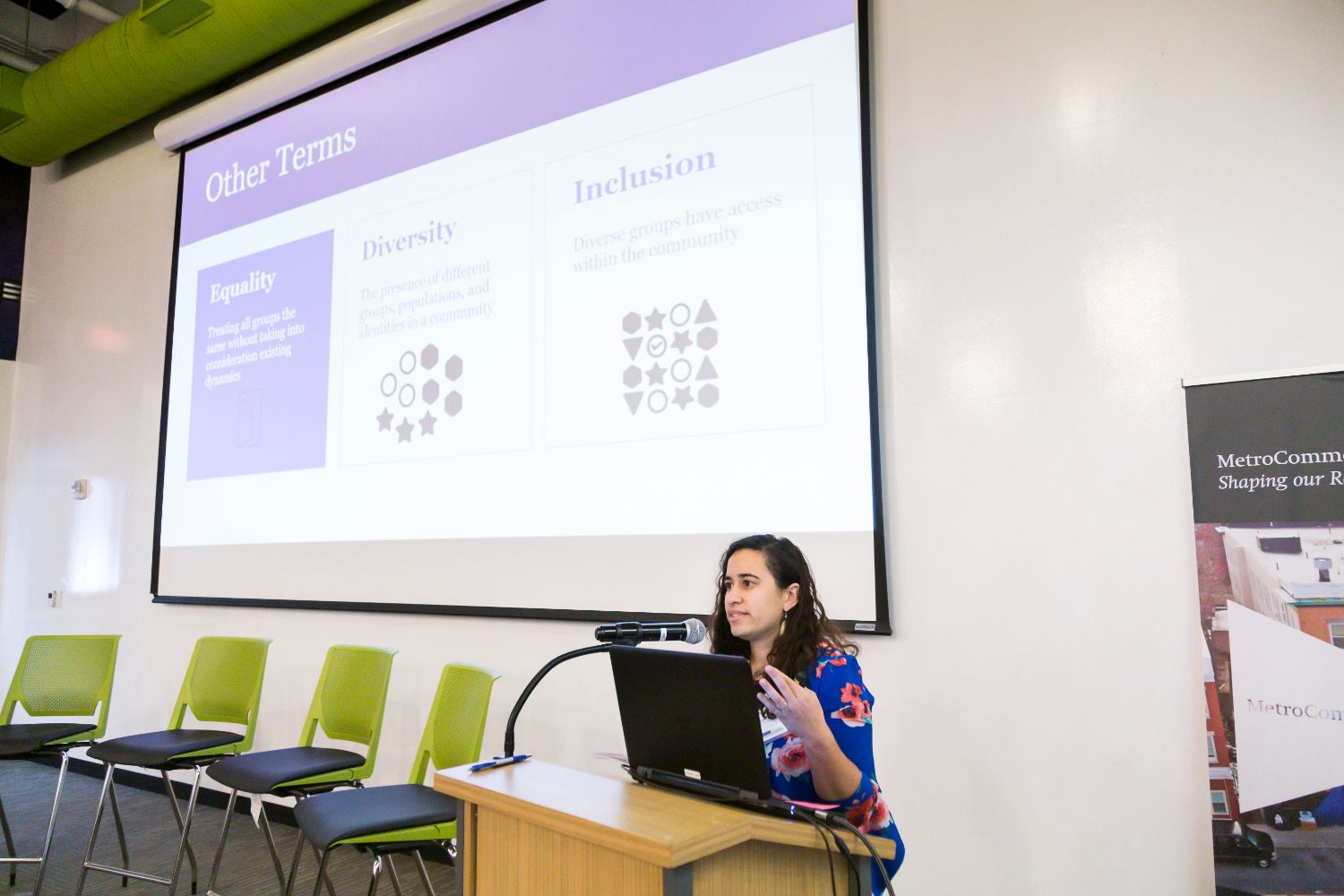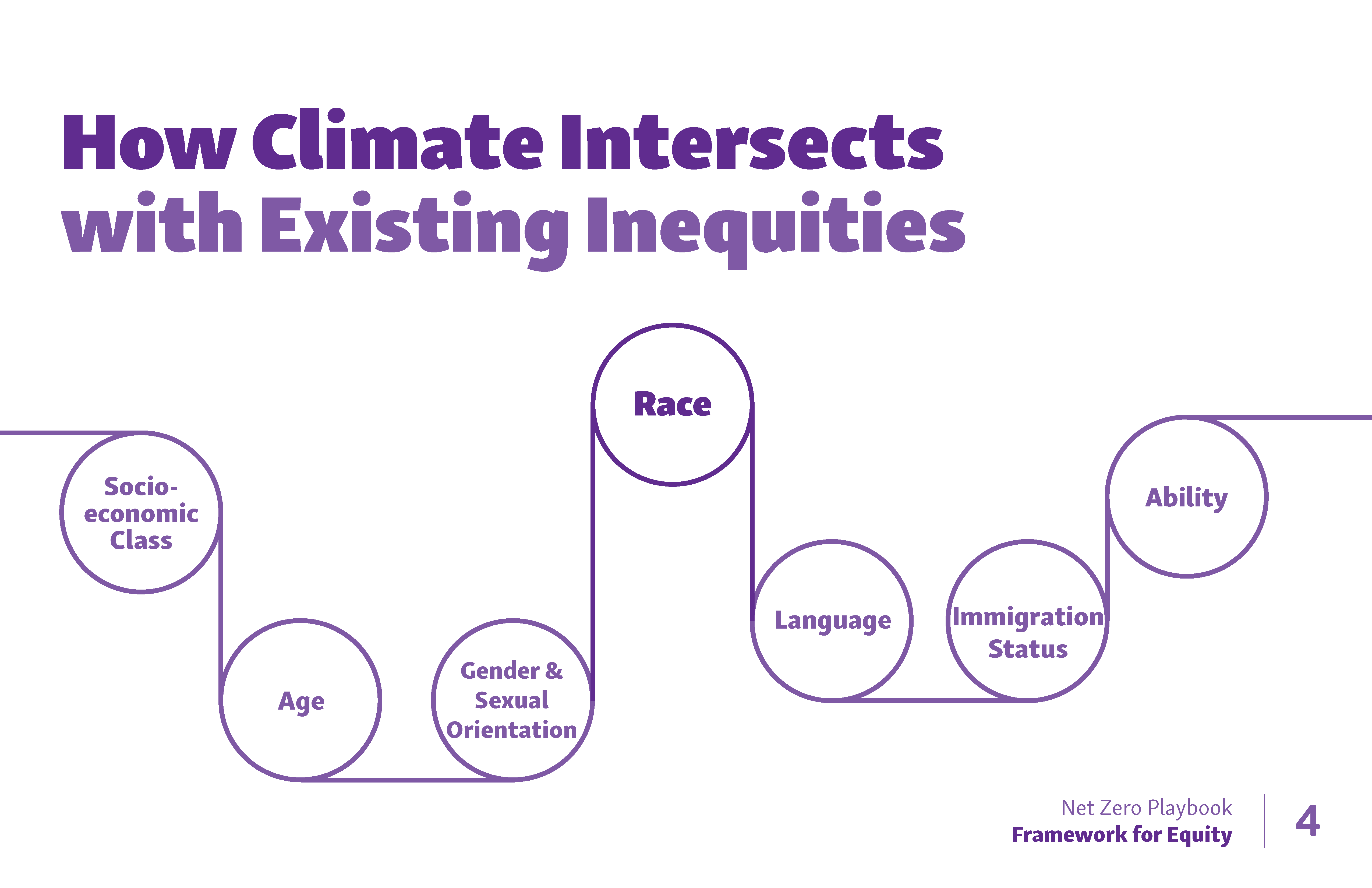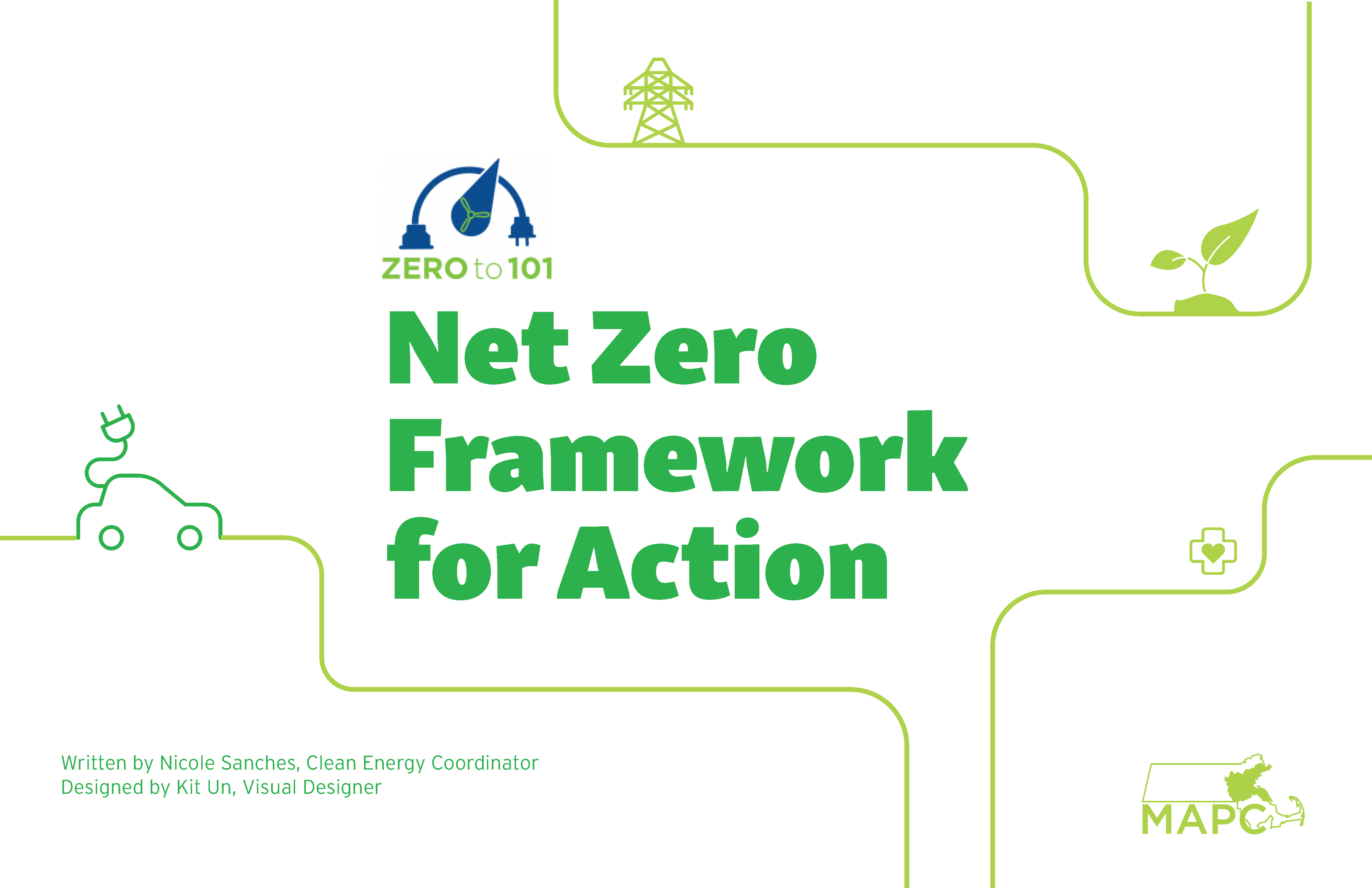
New Resources for Equitable
Net Zero Planning
Prioritize Net Zero Actions and Implement Equity with our Frameworks
In response to the climate crisis, cities and towns across the globe have made commitments to achieve Net Zero greenhouse gas emissions by maximizing reductions in energy use and supplying buildings, transportation, and infrastructure with renewable sources of energy. Here in Massachusetts, cities and towns have served as climate leaders, pioneering innovative clean energy programs and setting ambitious climate goals. To curb the most devastating effects of climate change, we need to make an economy-wide transition to net zero emissions by 2050, if not earlier. All communities will need to ramp up their actions now, advancing impactful near-term strategies in the next five years, in order to enable us to meet the challenge.
This transition is also a critical opportunity to address existing inequities and to reshape our communities for the better. By developing solutions focused on both equity and climate, we can move toward a carbon-neutral future that uplifts previously-underserved communities.
MAPC’s Clean Energy Department is developing a Municipal Net Zero Playbook to equip cities and towns with guidance and tools to tackle their climate goals. The Playbook is a set of resources that will help communities advance their net zero goals in an efficient, equitable, and smart growth-oriented manner.
The Municipal Net Zero Playbook will initially include six sections:
- Framework for Equity
- Framework for Action
- Zero-Emission Mobility
- Climate-Smart Zoning and Permitting
- Net Zero Buildings
- Clean Energy Supply
Early last December, the MAPC Clean Energy unveiled the first Playbook resources at MAPC’s biennial Clean Energy Forum: the Framework for Equity and Framework for Action. These frameworks are the basis of the Playbook and will help communities navigate the Net Zero landscape.
Both of the resources are now live and available to the public. See below for more info on the frameworks and links to download the resources.
Framework for Equity
While equity is often used interchangeably with words like diversity, inclusion, and equality, these words do not mean the same thing. Equality refers to the equal treatment of all groups, and therefore a focus on equality does not address the differences in need among different groups.
We’ve defined equity as the condition of fair and just inclusion into a society. Equity will exist when those who have been most marginalized have equal access to opportunities, power, participation, and resources and all have avenues to safe, healthy, productive, and fulfilling lives.
The Framework for Equity emphasizes a planning practice which takes into consideration the history, policies, power structure, and culture of a community and responds to these existing dynamics by calibrating tools and resources according to each population’s needs.
An overtly equitable approach is key to addressing the climate crisis, as impacts like increased sea level rise, high temperatures, and extreme weather affect marginalized communities most severely. Within the Boston area, communities of color are often disproportionally impacted by poor health and economic conditions and these outcomes will only be exacerbated by the impacts of climate change. MAPC’s climate vulnerability tool shows how social vulnerability characteristics like health, age, race, and income influence which areas are most at risk to the negative impacts of climate change.

The Framework for Equity provides communities with guidance for embedding equity in their Net Zero Plans at each stage of the planning process. The process begins with a community-facilitated equity assessment, which allows the community to identify its most impacted groups by investigating who has been historically impacted, who may be impacted in the future, and how the benefits of a certain solution will be distributed.
It is important to note that these steps are flexible and should be customized to meet the specific goals of the community. Climate change is a massive challenge that we must face together, and it is also an opportunity to craft a brighter future. The Framework for Equity is a resource for cities and towns looking to develop Net Zero Plans that assess and acknowledge existing inequities and to uplift and provide direct benefits to underserved communities.
Framework for Action
While the time to act on climate is now, a net zero future does not mean abandoning other important community objectives. MAPC’s Framework for Action emphasizes a holistic approach that drives energy, economic, environmental, public health, and equity goals while achieving carbon neutrality.

The Framework for Action outlines the essential components to a Net Zero planning process. Communities can use the framework to develop their own plan and – most importantly – turn that plan into local action.
Along with guiding the Net Zero process, the Framework for Action will also provide a set of “Action Evaluation Criteria” to help communities prioritize the potential actions described throughout the playbook. These evaluation criteria can serve to help communities select ambitious climate mitigation measures that align with local needs and priorities.
What’s Next?
The Frameworks for Equity and Action set the foundation for the Municipal Net Zero Playbook resources that MAPC will be releasing during the spring and early summer of 2020.
Sign up for our monthly Clean Energy Newsletter to receive timely updates about the release of future Municipal Net Zero Playbook resources focusing on Zero-Emission Mobility, Climate-Smart Zoning and Permitting, and Net Zero Buildings. Learn more about MAPC's Clean Energy work here!
Contact Nicole Sanches, Clean Energy Coordinator, to learn more about these two new Framework resources and explore ways to center your community’s plans on equity.


